You can use mod_proxy with OpenRefine without using virtual hosts.
I needed to do this exact same thing today. I have an SSL portal through which users must authenticate with some complicated PKI and LDAP tracking, and I need OpenRefine to be hosted behind this because of some data which it has access to. The answers to this problem given in this thread and elsewhere simply weren't acceptable, so I went through the source code expected to patch this behavior in--but I didn't have to!
I noticed that because OpenRefine runs out of a WEB-INF directory, it probably is probably built as a typical java web app. And sure enough, when I looked for how the context was being set on the server, I found this in Refine.java:
final String contextPath = Configurations.get("refine.context_path","/");
So this is what you do:
NOTE: StackOverflow won't let me write things that look like URLs because I don't have any reputation here. So when you read http:\, that really means http://.
1) In refine.ini, make sure that JAVA_OPTIONS includes "-Drefine.context_path=/refine". (It should go without saying that you changed refine.host to 0.0.0.0 instead of 127.0.0.1 and you also set refine.headless=true.) When you restart OpenRefine now, you'll access it at http:\your.refine.server:3333/refine (obviously put your server hostname in that url).
2) Now, for a simple example, we will make https:\your.apache.server/refine proxy to http:\your.refine.server:3333/refine .
In one of your httpd config files (maybe make a openrefine.conf in /etc/httpd/conf.d) put the following lines after enabling mod_proxy:
ProxyPass /refine http:\\your.refine.server:3333/refine
ProxyPassReverse /refine http:\\your.refine.server:3333/refine
The difference here is that OpenRefine is kept out of the global context, so the root of the application can be proxied. OpenRefine makes requests for resources with an absolute path, based upon how the context is set. So if you don't do this, OpenRefine will make javascript files which fall outside your proxy location, as everyone else on this thread was experiencing previously,
In real life, you might want to have mod_proxy use a load balancer over multiple OpenRefine instances and you might want to put some logic about which users are allowed to use this proxy tunnel.
Hope this helps someone else!
I also recommend that you review the undocumented Refine server properties which are also in Refine.java.

